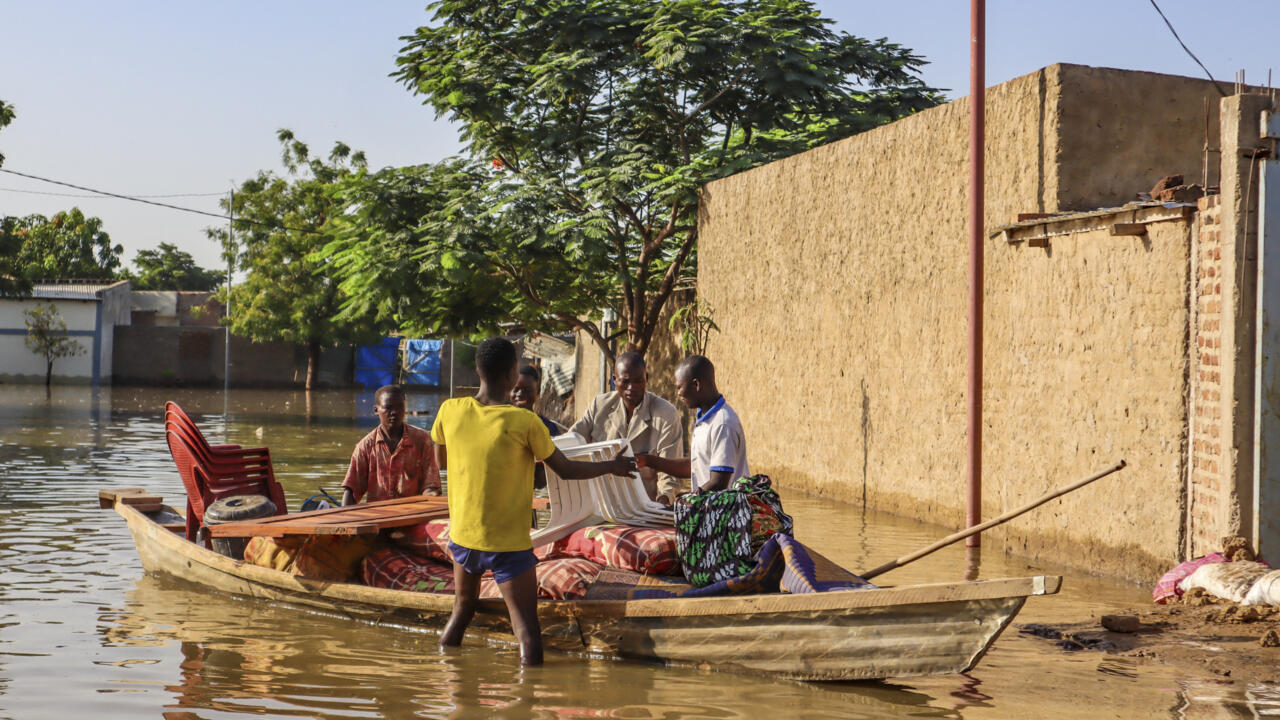Chad facing the disastrous agricultural consequences of the 2022 floods
Residents of Ndjamena attempt to salvage objects from rising waters, here on October 18, 2022, which has continued for nearly 20 days.
© Denis Sassou Gueipeur / AFP
Text by: RFI Follow
1 min
After unprecedented flooding in 2022, Chad is now at risk of facing food shortages.
According to a report by the Food and Agriculture Organization of the United Nations (FAO), 30% of cultivated land has been totally destroyed.
Advertisement
Read more
18 of the country's 23 provinces were flooded, causing population displacements, but also significant damage to homes, infrastructure and agricultural land.
According to the FAO
, to the 30% of the country's cultivated land which has been totally destroyed, another third of the land has been seriously damaged by the floods, with significant crop losses of up to 80%, reports the FAO. UN organization, particularly among the harvests of sorghum, rice and sesame.
Risk of food insecurity
Considerable damage in the livestock sector was also felt.
Thus, more than 170,000 head of cattle and nearly 300,000 poultry died due to the floods, often by drowning.
The FAO is also concerned about the consequences to come.
Some households have lost their entire food stock and producers – who have lost their means of subsistence – risk becoming food insecure.
Consumers also risk, in turn, being affected by these floods with, among other things, a rise in the prices of certain foods that have become rarer.
The UN organization recommends supporting the market gardening off-season – crops that are grown outside the usual rainy season – and preparing for the next campaign with, in particular, improved seeds, more suited to the climatic zones.
►Also read
: Chad is facing the worst floods in its history this year
Newsletter
Receive all the international news directly in your mailbox
I subscribe
Follow all the international news by downloading the RFI application
Continue reading on the same topics
Chad
Agriculture and Fishing
Natural disasters
Feed

